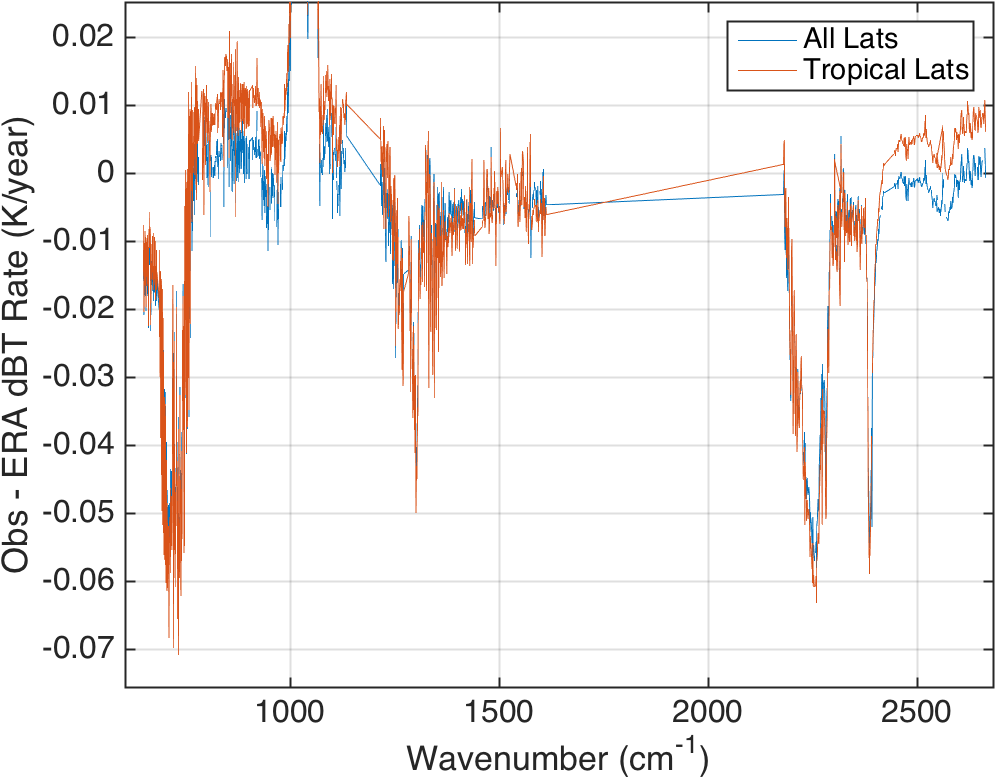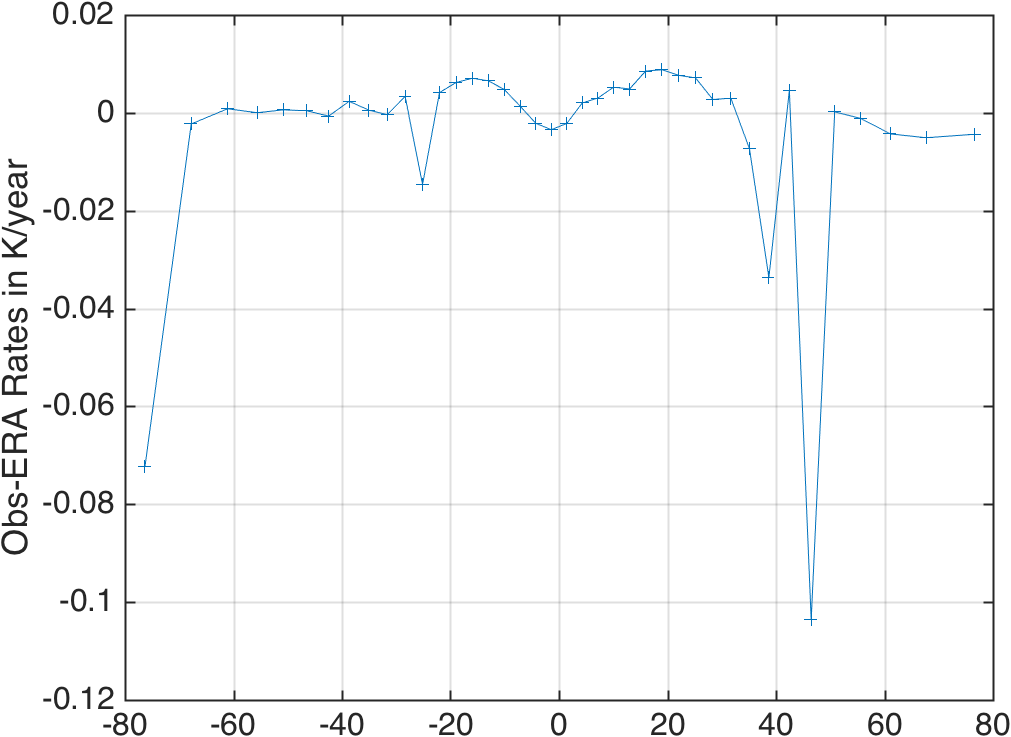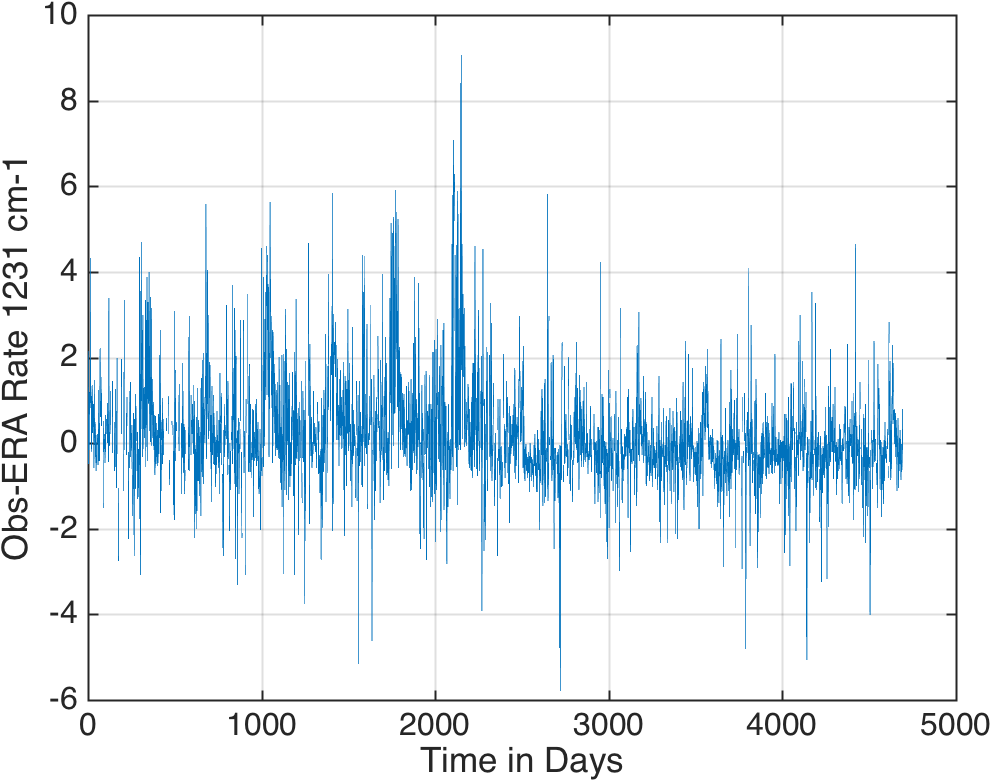AIRS Stability via 13-Year Clear Rates
Tue, Feb 9, 20161 Location
Source: /home/strow/Work/Airs/Stability
Data: /asl/data/stats
2 Summary
The AIRS 13-year clear ocean subset observations and ERA-colocations from AIRS V6 AIRXBCAL are binned per day and analyzed versus time to determine the stability of AIRS radiometry via retrievals of the time rate-of-change of CO\(_2\) and tropical ocean SST.
3 Details
I have generated the 13-year linear rates for descending orbit for both the observed and ERA radiances. Note that all calculations and averaging are done in radiance space and then rates converted back to dbrightness temperature.
Figure 1 shows the average rate over the 40 latitude bins. This is not an area-averaged weight, I will do that later. The fitted 2-σ errors have been adjusted for lag-1 autocorrelation. For window channels we are very close to a 0.01K/year radiance increase.

If you look at the latitude dependence of the 1231 cm-1 channel, in Figure 2 you see four outliers.

Zooming in on the +45 latitude bin, I now plot the Obs-ERA Cal rate versus time. It appears that ERA (or AIRS) has some large differences until about 1/2 of the way through the mission. I will need to examine ERA SST model, they did switch at some point.
